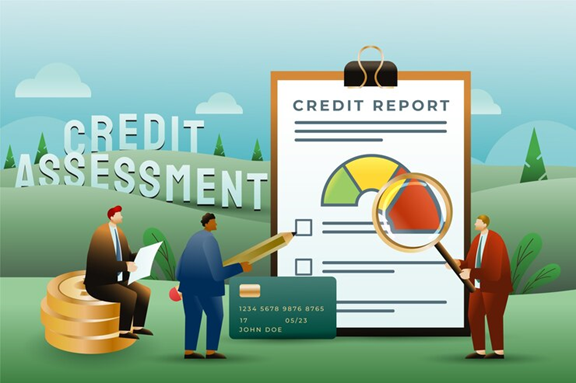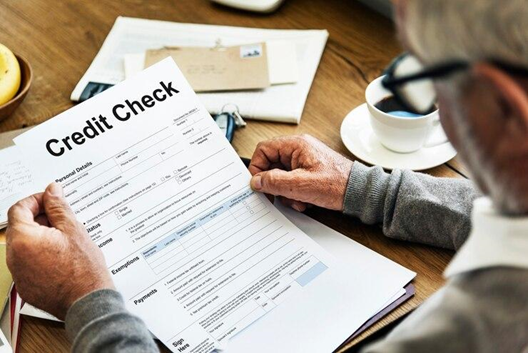Credit Tip Tuesday #59 Why Credit Bureaus/Credit Reporting Agencies Are Important? Everything You Need To Know


Image Credits: Freepik
Your good credit score can be a game changer if your goal is to build credit, apply for a low-interest loan, purchase a new home, or get a secure health or auto insurance.
Yes, you can budget, pay bills on time, maintain a below 10% credit utilization ratio and follow all those credit improving tips, but how can you know if it’s working or not?
Here comes the credit bureaus and credit reporting agencies in the picture.
Ever heard of them? Well, even if you’ve just stepped foot into the finance world, this is the first thing you should get your hands (or mind) on. Hehe. But, if you’re a noob, your mind must be full of the following questions:
- What is a credit reporting agency/bureau?
- Why is it important?
- How is it related to my credit score?
Why fear when Plastk is here? Find answers with us down below!
Credit Bureau: An Easy To Understand Overview  Image Credits: Freepik
Image Credits: Freepik
The information on how you use your credit card gets stored in a database of a data collection agency primarily called a credit bureau or credit reporting agency.
These agencies can further provide consumer credit information to lenders or loan companies (for a fee) to review the client’s credit status.
Of course, the final say is in the hands of the user or the credit card company. So, in simple words:
“A credit bureau is an organization that stores and shares consumers' savings, spending, and borrowing habits.” - Wikipedia
In general, the credit report is compiled by curating the consumer’s credit account information using:
- Account number
- Social security number
- Verification number
- Identification number
So, do these credit reports have any significance for the account owner? Are these credit bureaus important? Let’s find out in the next section.
Why Are Credit Bureaus Important?

Image Credits: Freepik
If you ever wanted to get a credit card, but your application was rejected, you must know the significance of a credit report.
And, as we explained earlier, your credit report is curated by the credit reporting agency, making them equally crucial. Because in the end, your financial stability depends on your credit report. Here’re some general things credit bureaus are responsible for:
- Curating correct personal information
- Creating your credit report with the right balance, bill payments, debt to credit ratio, etc.
- Analyzing the soft and hard inquiries to update the report accordingly
Although, credit agencies usually need permission from the creditor to pass on the credit information to lenders. Sometimes, banks, mortgage companies, and other loan organizations can also request to see the credit report.
So, whether or not you’ll get the loan, improve credit score, or apply for better insurance highly depends on credit bureaus' reporting.
With the right bureau reporting comes our next section in the view:
Can Credit Bureaus Report Have Errors?
Yes! It is possible!
Geez, you don’t need to go in a panic mood. Let us explain!
How do the credit bureaus get your credit information? From the credit card company or lender. Duh!
So, is the data transfer totally computerized or robotic? Uh, no? Yep, here’s your answer.
As your credit information is sometimes manually input into the database or when you enter the verification number to get the report, things get messed up in the way.
And as per the reports, 5% of people found errors in their credit reports. However, only 33% preferred to check their credit report.
As a result, these errors can be forwarded each month to the database, which causes an abnormality in the system and could generate some incorrect information consumer reports.
Lastly, to answer the question, credit bureaus can have errors in the credit report, but the real culprit here is your credit card company.
Bonus: Click to read the common credit report errors and how you can dispute them without hurting your credit score.
How Does A Credit Reporting Agency Work?
So, a credit bureau is a type of business firm responsible for collecting and organizing the credit data of an individual or a company.
Usually, they get a monthly update of a credit account from a lender or credit company to compile, curate, and analyze given information to form a credit report.
Finally, the generated credit report is filled with the final consumer credit score, credit history, payment details, and similar credit information.
Top Credit Reporting Agencies
Every state has different laws and firms that work as credit bureaus. But, in general, the top credit reporting agencies are:
- Equifax
Equifax is an Atlanta-based credit bureau accepted in almost 24 regions, including the US, Canada, UK, Spain, etc.
Their motto is to support the financial stability of individuals by promoting their accurate and authentic credit information.
- TransUnion
TransUnion is an American-founded credit bureau accepted worldwide in different regions like the US, Canada, UK, India, Brazil, etc.
Their goal is to help credit noobs and finance experts lead stable, happy, and wealthy life. In addition, they work to represent people in a prosperous marketplace environment.
- Experian
Experian is an Irish-American credit bureau that works in different regions like Ireland, Canada, the UK, the US, etc.
The team works to improve the living conditions of individuals by curating accurate credit reports that may help them stabilize their credit life.
As all the three bureaus work as a reporting agency, you might think they have the same work and purpose. But the working method of every firm is different.
Still, they work to generate consumer credit reports to help them live their best lives.
Do Three Credit Bureaus Have Different Credit Reports?

Image Credits: Freepik
The three bureaus have the same goal, but their workflow is different. So, there’s a chance they show somewhat different results.
For instance, if you applied for a loan, there’s a chance your lender requested a credit check from Equifax. The other two bureaus won’t know about this inquiry in this scenario. So, as a result, only the Equifax credit report will show this credit check request on their report.
However, it can also happen that your credit company reports only to two bureaus so the third bureau won’t have your updated credit data in their database.
So, it really depends on which credit bureau is preferred by the lender or the credit card company.
FAQ
If you still don’t understand the significance of credit reporting agencies, here is an easy Q/A session for you:
1. What is the role of a credit bureau?
Credit reporting agencies collect bill-paying and borrowing practices of consumers. Then, loan companies utilize this information to decide the lending status of creditor applications. While credit agencies share this information with the lenders, the final say is always of the consumer.
2. What is the top credit reporting agency?
The top three credit bureaus are Experian, TransUnion, and Equifax. However, these aren’t government-registered but private agencies. Sill, the trio, is responsible for curating credit reports, collecting credit data, and sharing consumer information in the credit and finance market.
3. Who regulates credit reporting agencies?
Although the top credit bureaus are private organizations, still, they are regulated by federal authorities like the CFPB (Consumer Financial Protection Bureau) and FTC (Federal Trade Commission). In addition, however, every state and area has its laws regarding credit reporting.
4. When do credit bureaus receive reports from credit companies?
Credit card companies usually report to credit bureaus once a month about your spending and savings. And it also takes one month for a new update to show on your report. So, for instance, if you cleared a late payment, it can take up to one month for your credit history to get updated.
5. How do credit bureaus work?
Credit reporting agencies coordinate with banks, credit card companies, or other collection organizations to find your information when you open your account. They can also search public records to find tax data, criminal history, bankruptcy, and similar information.
6. Is it compulsory for lenders to report to a credit bureau?
It is complex to say whether or not it’s compulsory for the lender. However, if they decide to do it once a month or according to their companies policy, the Federal Credit Reporting Law states that they should always report accurate and updated information to the bureaus.
Bottom Line
“Your credit report is your credibility!”
Almost every credit expert and finance guru chants this tagline. But, hardly anyone talks about the impact of a credit bureau on that very credibility.
Luckily, we collaborated with top credit sources and came up with the idea of collecting information on the ‘importance of credit bureaus’ to help you out.
So, give his interesting research a read and let us know your thoughts about it.
Lastly, check our other articles on Plastk Blog to increase your financial literacy. Happy reading!

